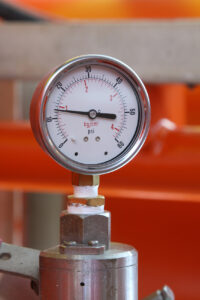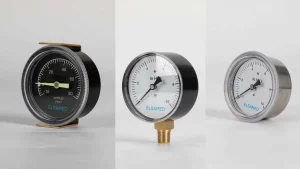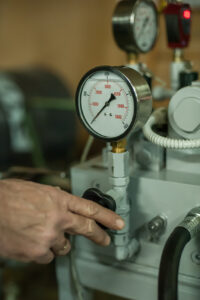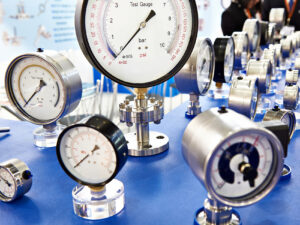Pressure gauges are critical instruments in the marine industry, where they are widely used to monitor the performance of systems such as engines, pumps, and hydraulics on ships and other vessels. The marine environment presents unique challenges due to constant exposure to saltwater, humidity, and vibrations, making it essential to have durable and accurate pressure measurement tools to ensure the safety and reliability of operations.
One of the key applications of pressure gauges in the marine industry is in monitoring engine oil pressure. Maintaining the correct oil pressure is crucial for ensuring that marine engines run smoothly and efficiently, preventing overheating and engine damage during long sea voyages. Additionally, pressure gauges are used in bilge pumps to monitor the pressure in the bilge system, which removes water from the vessel’s hull to prevent flooding. Hydraulics systems, which control everything from steering to cargo handling, also rely on accurate pressure monitoring to function safely and effectively.
Pressure gauges used in marine applications are typically constructed from corrosion-resistant materials such as stainless steel or brass to withstand the harsh saltwater environment. These gauges are often filled with glycerin or silicone oil to protect against the effects of constant vibration and shock, ensuring that the gauge provides reliable readings over time. Some marine pressure gauges are also designed to meet specific marine standards and classifications, such as DNV GL or ABS certification, to ensure compliance with industry regulations.
In conclusion, pressure gauges in the marine industry are vital for maintaining the safety and efficiency of various vessel systems. Their durability and resistance to the challenging marine environment make them indispensable tools for ensuring smooth operations at sea.



